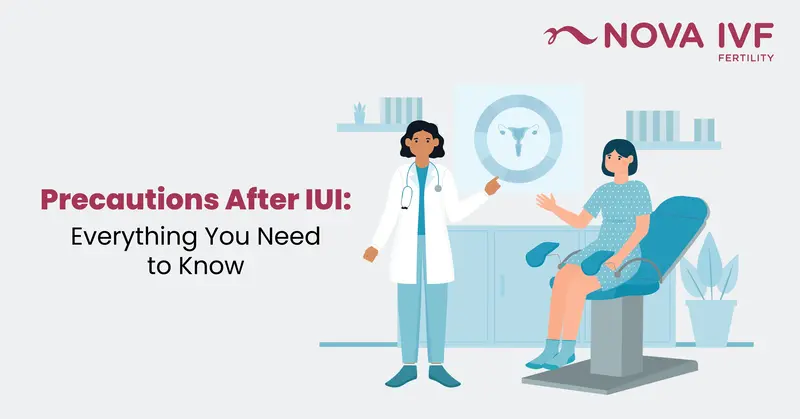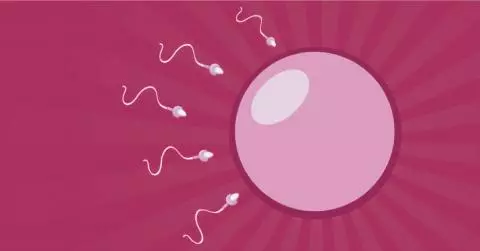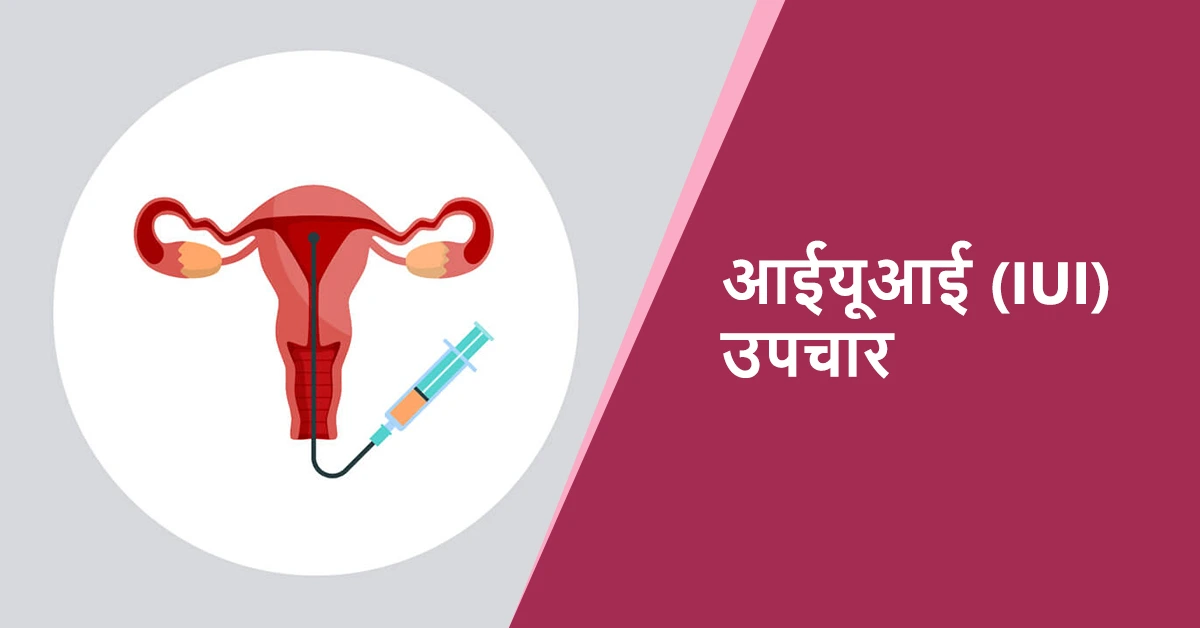Essential Precautions & Things to Avoid After IUI for Success

Precautions After IUI Treatments
While conceiving a child may be second nature to some, for others it can be a bit of a challenge. Fertility issues, lack of a partner, or underlying physiological conditions can all act as obstacles to conceiving a child. However, such hurdles can be overcome with the help of modern medicine and treatments like IUIs, also known as Intrauterine Insemination. Continue reading to learn more about the procedure and post-IUI precautions to take.
What is an IUI?
An IUI is a form of artificial insemination instrumental in helping people with infertility and lack of partners conceive. The procedure entails placing a sperm sample directly into a woman or AFAB (Assigned Female at Birth) person's uterus. Usually, sperm travels from the vagina, through the cervix, and to the uterus. At the same time, the ovaries release an egg that travels via the fallopian tube. When the sperm meets the egg, the latter gets fertilised. An IUI helps wash the sperm and rid it of any impurities to create a high-quality concentrated sample. The procedure makes it easier for sperm to travel through the body and reach the egg quickly. Since the procedure involves placing the sperm directly into the uterus, it circumvents obstacles plaguing the cervix and increases the odds of conception.
Since IUIs are minimally invasive, healthcare practitioners often recommend the procedure before moving on to more drastic measures to treat infertility. IUIs are also preferred since they work with frozen and fresh sperm and can be timed to increase the chances of success. However, while the procedure is relatively simple and safe, it is best to make note of things to avoid after IUIs.
What are the things to avoid after IUI?
IUI are not fool-proof, and many individuals require multiple cycles of the procedure to achieve success. To ensure that the procedure has a higher chance of succeeding, it is best to stay cognizant of the things to avoid after IUIs. Here is a list of dos and don’ts after an IUI:
Refrain from taking pain relievers
One of the first things to avoid after an IUI is to take a pain reliever. Several women resort to pain relievers while dealing with painful menstrual cramps. Often, a side-effect of an IUI is experiencing similar cramps. While the first instinct to deal with IUI-related cramps is to take a pain reliever, doing so can hamper the chances of conception. If severe cramps persist after an IUI and are unbearable, it is best to consult with a doctor. A doctor or medical practitioner can prescribe pain relievers that are safer to take after an IUI.
Caffeine and Food Items
Pregnant women are often advised to forego caffeine and the same principle applies when it comes to post-IUI precautions. Since caffeine is present in beverages like tea and coffee, it is best to avoid consuming them after an IUI. Excessive caffeine consumption can decrease the chances of conceiving after an IUI. Similarly, certain food items should also be avoided after an IUI. One of the things to avoid after an IUI is consuming uncooked or raw food, especially meat and animal products. Such food items can increase the chances of falling ill and cause indigestion. Since IUI is a sensitive procedure, even slight changes can derail the planning and execution. In a similar vein, it is best to avoid food items that are hot and difficult to digest, including spicy cuisines, sugar beverages, processed foods, and fish. While most fruit is a good option after IUIs, pineapples and papayas can act as blood thinners and dissolve the uterine barrier where the fertilised egg plants itself.
Drinking and Smoking
Just like caffeine, pregnant women are also advised to refrain from smoking or drinking alcohol. Tobacco and alcohol have a substantial negative impact on fertility. Pregnant women who deal with substance abuse, alcohol consumption, or smoke tobacco run the risk of facing pregnancy problems and hindering their child’s development, leaving them deformed. Similarly, smoking and drinking after an IUI can also drastically reduce the chances of the pregnancy taking hold.
Swimming
Another thing to avoid after an IUI is to go swimming. Swimming after an IUI can be really dangerous as it exposes one to infection. It is best to avoid swimming for at least two days after an IUI treatment. Although swimming is a great exercise, giving it a rest for a couple of days following an IUI treatment can be better for your health in the long run.
Avoid Stress
Stress can cause severe hormonal imbalances even at the best of times; it follows that it is one of the things to avoid after an IUI. Hormonal imbalances during the post-IUI period can reduce the chances of conception and can also have long-lasting effects on overall health. It is best to maintain a positive attitude during the period after an IUI and aim to stay calm. Anxiety is also a leading cause of failed IUIs. Psychological states have a profound impact on physiological functions such as hormones and internal systems. Under stress, the body’s balanced environment suffers and can hamper an IUI treatment from succeeding. Worrying about the success of the treatment can also turn into a self-fulfilling prophecy and must be avoided.
Exertion
One of the most important things to do after an IUI treatment is to rest adequately. Hence, it is best to avoid exertion of any kind. Resting after an IUI helps improve the body’s metabolism and is the foundation for good health. Taking proper rest can also positively affect mental well-being and reduce the stress that can hamper the IUI procedure.
Extra Exercise
While exercising after an IUI treatment can benefit you and increase the chances of conception, there is a limit to the same. Ideally, it is best to stick to mild workouts, like walking, after an IUI. Hard workouts like weightlifting and running should be avoided since they can increase the stress on the body.
Lifting Heavy Items
A person who has received an IUI treatment should not lift anything that weighs upwards of 4-5 kgs during the post-care period. Lifting heavy objects after an IUI can cause cramping. As a result, the uterine wall may get injured and reduce the chances of the IUI treatment taking hold. To ensure that the odds of the IUI succeeding do not fall, it is best to avoid lifting heavy objects after an IUI treatment.
Stay Cool
It is important to note that higher temperatures can negatively affect implantation. To ensure that the IUI succeeds, it is best to avoid warm environments like hot tubs, saunas, sitting in the sun, etc. A lukewarm bath or shower is a better way to relax and unwind during the post-IUI care period.
Avoid Pregnancy Tests
Although it is tempting to take pregnancy tests right after an IUI, it is best to wait. Taking a pregnancy test too early won’t show accurate results and can add to mental stress. Waiting for at least two weeks after the IUI procedure can provide more accurate results and help one avoid undue stress that can negatively impact the procedure.
Eat Healthy
A well-balanced diet is crucial in supporting fertility and ensuring a healthy pregnancy afterwards. Post-IUI care also calls for a nutrient-rich diet comprising items like fruits, vegetables, whole grains, healthy fats, proteins, and so on.
Prescription Medication
Post-IUI therapy usually includes certain drugs to increase the odds of the procedure working and boost the overall efficacy of the process. As a result, it is best to ensure that one does not skip taking the prescribed medicine on time. Similarly, it is best to consult with the concerned doctor or medical professional as to which medications should be avoided after an IUI, especially in tandem with the medications prescribed in association with the procedure.
Avoid Radiation
Exposure to hazardous radiation after an IUI treatment can be dangerous. One of the things to avoid after the procedure is to sit in the sun for long stretches of time. Other tasks that expose one to dangerous radiation should also be avoided in the days following the IUI procedure.
What are the Dangers Associated with IUIs?
IUIs are low-risk procedures when pitted against more invasive procedures. However, an IUI does come with certain dangers such as:
- Multiple births: Using fertility medication during the IUI process can produce more than one egg and result in the conception of twins, triplets, or multiple babies.
- Premature labour: Premature births and low birth weight are also likely after IUIs.
- Infection: Although uncommon, it is best to avoid certain activities to avoid exposure to an infection after an IUI.
- Spotting: A small amount of vaginal bleeding may occur after the procedure.
Avoiding the activities listed above can help mitigate the risks associated with IUIs. However, it is best to consult a medical professional to create a personalised plan for the post-IUI care period. Doctors and medical professionals can help you select the right fertility plan, align the timing, conduct the procedure safely, and help mitigate any risks. Seeking professional help can also make multiple rounds of IUI easy on the mind and body. If multiple attempts at IUI fail, doctors can also suggest going for more advanced treatments like IVF. However, to increase the chances of the procedure taking hold, it is best to follow the list of after-IUI dos and don’ts stringently.
World-Class Fertility Treatments and Care at Nova IVF
Nova IVF is dedicated to providing more and more Indians with world-class fertility treatments and care. Equipped with state-of-the-art medical technology, equipment, and expert clinicians, Nova IVF is a reliable resource for fertility treatments. From safe and secure IUI treatments to our robust donor programme, we provide holistic fertility care to help individuals circumvent reproductive obstacles.
Head to Nova IVF and fulfil your lifelong dream of becoming a parent.
FAQs on Precautions after IUI
Q. Which foods to avoid after an IUI?
A. Ideally, it is best to avoid food items with excessive caffeine, like tea and coffee, and raw and uncooked meat after an IUI. Similarly, food with high mercury content, like swordfish, king mackerel, and so on, should also be avoided as they can harm the development of an embryo. Fruits like papaya, pineapple, and grapes should be avoided since they contain blood thinners or produce excess heat in your body and hamper the IUI from succeeding.
Q. Which foods are good after an IUI?
A. Certain foods like whole grains (brown rice, quinoa), lean proteins (chicken, turkey, and tofu), healthy fat (avocado, olive oil, and nuts), leafy greens (spinach and kale), and dairy products (yoghurt, cheese, and milk) are good to consume after an IUI.
Q. Which exercises can one do after an IUI?
A. While is best to avoid extra exertion and exercises like weightlifting, activities like going for a walk, doing gentle yoga, and stretching are good after an IUI.
Q. How long is the post-IUI care period?
A. The post-IUI care period lasts for around two weeks.
Q. What are the side effects of an IUI?
A. For around 3 days after an IUI, one may experience symptoms like mild cramping, spotting, breast tenderness, and fatigue. While these symptoms are normal, if one experiences severe symptoms or abnormal pain it is best to consult a doctor or medical professional.
Q. What are the signs that an IUI has succeeded?
A. While the regular side effects of an IUI are normal and healthy signs, changes in the body’s basal temperature may suggest that ovulation has occurred and that pregnancy may be on the horizon. However, it is best to take a pregnancy test after the post-IUI period to get accurate results.
Q. Can one travel after an IUI?
A. While travelling after an IUI should not be a problem, it is best to consult with a doctor to ensure that there is no risk associated with the trip. While travelling, one should avoid lifting heavy items or taking on too much exertion.
Q. How many days does it take for an IUI to work?
A. Usually, an IUI takes 5-7 days to work. The egg is usually fertilised on day 5 after an IUI and implanted in the uterine wall on day 7. However, it may take several more days before a pregnancy test can provide accurate results.
 Infertility Counselling
Infertility Counselling Female Infertility Treatment
Female Infertility Treatment Andrology Treatment
Andrology Treatment Fertility Enhancing Surgeries - Female
Fertility Enhancing Surgeries - Female Fertility Enhancing Surgeries - Male
Fertility Enhancing Surgeries - Male Endoscopy Treatment
Endoscopy Treatment IUI Treatment
IUI Treatment IVF Treatment
IVF Treatment ICSI Treatment
ICSI Treatment Advanced IVF Solutions
Advanced IVF Solutions Embryology
Embryology Vitrification Egg, Embryo, Sperm Freezing
Vitrification Egg, Embryo, Sperm Freezing Preimplantation Genetic Testing (PGT)
Preimplantation Genetic Testing (PGT) Donation Program Embryo / Egg / Sperm
Donation Program Embryo / Egg / Sperm Self-cycleTM IVF
Self-cycleTM IVF

 Self-cycleTM IVF
Self-cycleTM IVF










